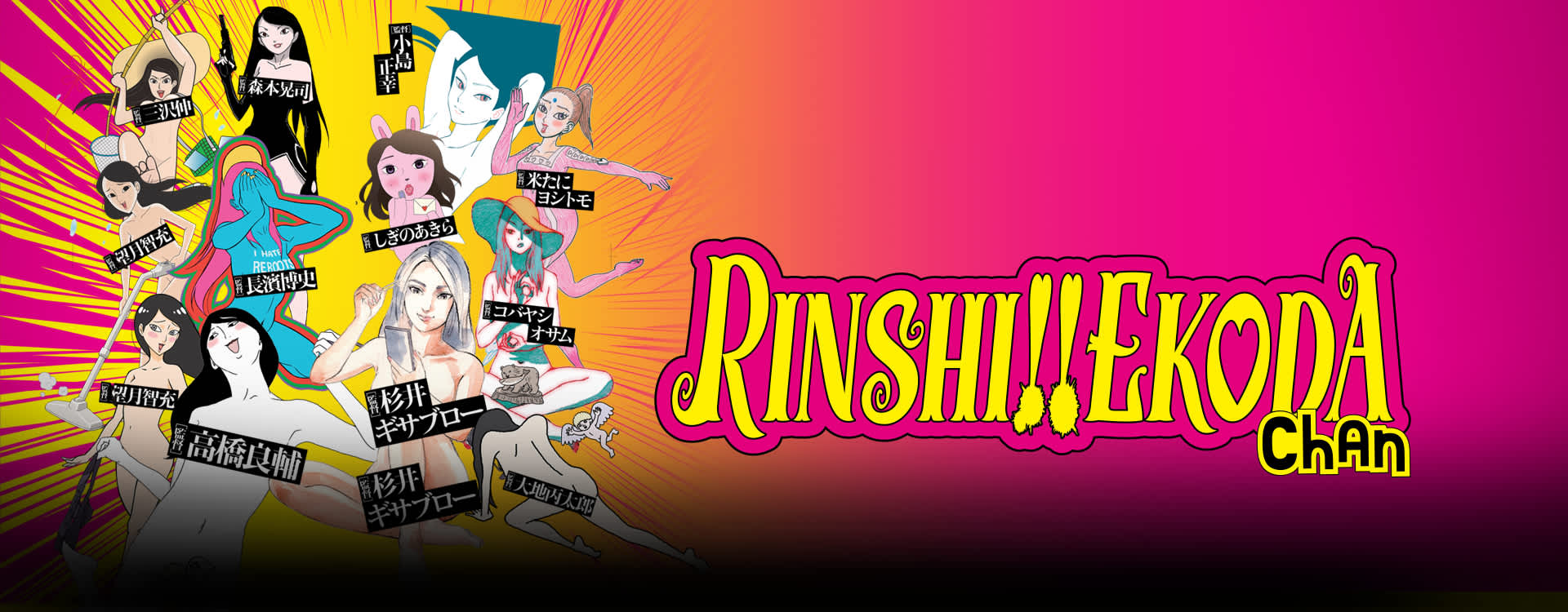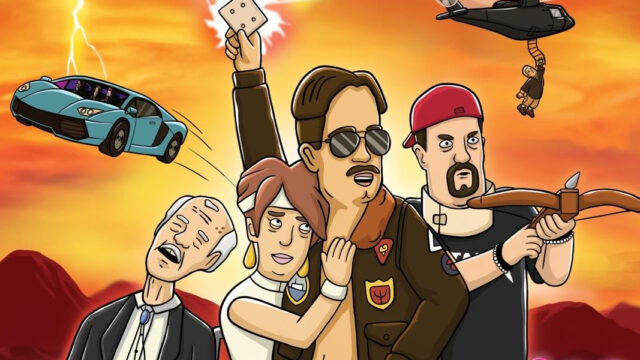English Dub Review: Rinshi!! Ekoda-chan “Episode 9”
Mindless drudgery and crippling stage fright, a dichotomy of epic proportions
Overview (Spoilers Below)
Ekoda-chan is at one of her many jobs. Today’s she’s working as a customer service representative for a life insurance company. She’s extremely depressed about her work. Whether it’s her overly-chipper co-workers, her overbearing boss, or her alternately needy and extremely rude customers, it seems like everyone has made it their job to make sure that Ekoda-chan hates hers. As a coping mechanism, she stares out the window and daydreams. She even manages to catch a beautiful sunset, something that she is certain everyone else in the office was too busy to enjoy.
Ekoda-chan works well into the evening when a thunderstorm hits. The entire office is in a panic when suddenly the power goes out. The entire call center shuts down and everyone goes even crazier than they did before. Only Ekoda-chan manages to remain calm under pressure. Eventually, the power comes back on again and everyone returns to their normal days as if nothing ever happened. Ekoda-chan, too, returns to her wildly backlogged call cue. She picks up her first call, and it’s yet another infuriating customer. We leave the episode much the same as we entered, struck with the sense that nothing ever changes here, and it’s unlikely that it ever will.
Our Take
The call center is an important site for twenty-first-century labor. It is the pinnacle of maximizing working time and minimizing downtime, making it probably one of the worst office jobs that exist in the modern era. Boots Riley politicized this space in 2018’s Sorry to Bother You, making the call center a site for labor organizing as well as one of capitalist excess. While this week’s episode of Rinshii!! Ekoda-chan is unlikely to be in direct conversation with Riley’s Marxist polemic, it is interesting to see how much they do have in common.
Call centers are rarely fun places to be. Most media depicts it as the zenith of white-collar exhausting labor. The only show I can think of that portrays the call center in even a neutral light is Workaholics, but the show really only interacts with the business of calling people on the phone incidentally, preferring to make it the backdrop for the protagonist’s antics. Usually, however, when a story is set in a call center, it is to express a hopeless office drone mentality that traps the protagonist in its ouroboros of small talk to clients and coworkers alike.
In this week’s episode, Ekoda-chan ends as she begins. She works day in and day out servicing an endless volley of customers. She will never be finished, she will only close for the day. When the power goes out, fifty calls show up on her terminal alone when she returns to work. The life insurance firm she works for will never hire enough people to be able to handle to volume of calls, and her metrics of how fast she gets each person off the phone are the major tracker of her progress. Many Ekoda-chan stories comment on the gig economy, where Ekoda floats from job to job barely making ends meet. This episode is, then, the opposite end of the spectrum. Ekoda has only a single gig (seemingly) and it pays her enough that she doesn’t seem to need a second job, but only barely, and it saps her soul while she works.
Normally, I would be deeply interested in the kind of mind that sees the call center as a site for Ekoda-chan to exist in. Rinshi!! Ekoda-chan would, then, be the perfect show to understand some of director Takashi Takeo’s motives behind choosing what he did to make this episode. Unfortunately, he is apparently incredibly camera shy, so he has voice actor Takashi Ryosuke sit in for the question and answer portion of the episode along with this week’s Ekoda-chan, Koshimizu Ami.
This means the interview is unsatisfying for a number of reasons. While I am glad to see Ms. Ami get the bulk of the interview after listening to listless directors speak at length about their pieces week after week, there are some things that only the director can answer. And aside from being primed on some basic information about Mr. Takeo’s career and his relationship with Ami. Ryosuke doesn’t have much in the way of insight. Additionally, the interview starts off with so many jokes from Ryosuke. He then goes silent for extended periods of time, so it is unclear when he comes back if he is serious or not. I am well-aware that this could be a translational issue, but it does make the whole thing fairly hard to parse.
Now, I won’t pretend that I was ever totally charmed by any of these interviews. I find them overlong and unnecessary. But, given they are the constitutive nature of the show, I have been doing my best to find just what can be good about them. The best ones take insight from the director and explicate it to the audience, usually bolstered by a few questions and challenges from the actress playing Ekoda-chan. It’s great to see a director who cares about his project, but it was very difficult to tell this time around. I am endlessly sympathetic to Takeo needing someone to speak for him due to his immense stage fright, but Ryosuke was not the best voice he could have chosen.
Any of these reviews could, unfortunately, end the same way. Rinshi!! Ekoda-chan lures me in, week after week, with a reasonably interesting piece of short animation. Sometimes, it’s even great. Then, even though I’ve known about it since week two, I am blindsided by the slog that is getting through one of these interviews. They’re often pointless. The director doesn’t seem to care about the project and the actress is commenting on a performance I haven’t actually heard because she was dubbed over. It’s doubly disappointing that the one time I was interested in what the director had to say, he couldn’t say anything at all.



























Hi Ashley, thank you so much for reading and we love the feedback. Note that on that day we had 14th posts go up and only ten posts show on the front page, so it's possible the preview had already been archived by the time you got to it. One recommendation would be to add our RSS feed to your favorite news aggregator service like Feedly, this way you get all of the latest posts!